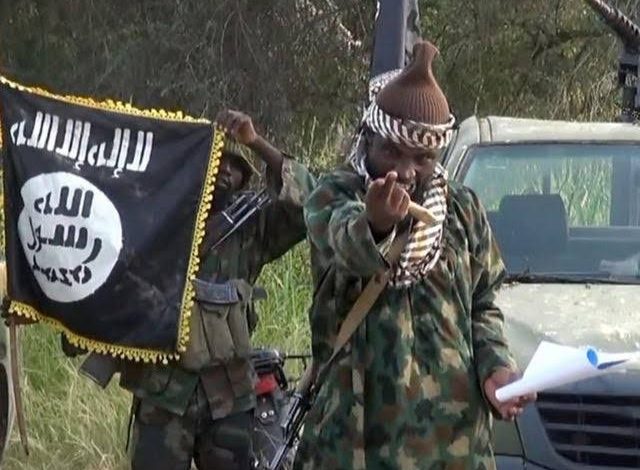How Nigeria’s Vicious Terror Group Is Making A Comeback

Over the past few weeks, Jama’atu Ahlul Sunnah Lidda’awatu Wal-Jihad (JAS), otherwise known as Boko Haram has conducted a series of daring raids, mass killings and abduction in Northern Nigeria and neighbouring Diffa in the Niger Republic.
The sudden onslaught by the group appears to be an attempt by Boko Haram to regain prominence and step out of the shadows of the breakaway Islamic State West Africa Province (ISWAP) faction.
This trend is happening at a time when terror groups in the Northwest and Northeast are beginning to exploit the dry season to conduct attacks on civilians and security forces.
The dry season provides a terrain that facilitates the mobility of armed groups which is occasioned by clashes between herders and farmers that force diversion of security forces to contain or prevent violence.
On December 11, a group of gunmen on motorcycles abducted hundreds of schoolboys from Government Science School Kankara, Katsina State.
HumAngle learnt that the profile of the abductors fits those of armed groups known for kidnappings in the region. However, days later, the leader of Boko Haram, Abubakar Shekau claimed responsibility for the abduction and a source informed HumAngle that a total of 523 schoolboys are being held by the terror group.
State authorities have claimed that 333 is the number of students unaccounted for, and many observers have contended that the number is possible due to reports of several students escaping from the terrorist captivity.
The incident in Kankara brings back a dark memory of when the group at its peak in 2014 stormed Government Secondary Chibok, Borno State and abducted 276 schoolgirls from the school dormitory.
One hundred and seven of the girls have so far been released or escaped. Several others are still unaccounted for. The abduction drew international condemnation and criticism.
On December 12, Bakura group, an affiliate of Boko Haram operating in Lake Chad, raided a refugee camp in Niger Republic, Diffa region. At least 28 people were killed and 800 homes were destroyed. The attack was later claimed by Boko Haram in a video.
These series of attacks, recorded within the first 12 days of December, were preceded by November 8, gruesome massacre and beheading of at least 78 rice farmers in Zabarmari in the greater Maiduguri area.
A few days earlier, on Sunday, November 8, the group launched a night attack on the garrison town of Gwoza, prompting the Nigerian troops to deploy air power and ground forces to repel the insurgents.
Between 2014 and 2015, Gwoza town served as the headquarters of Boko Haram, but the military re-took Gwoza in March 2015, enabling displaced locals to gradually return.
The group has mostly focused on raiding villages in the area of influence and attacking vulnerable farmers, loggers and travellers.
These recent attacks could signal a resurgence of the group after severe bleeding caused by the split in 2016 and the impact of the military’s Operation Deep Punch in 2017.
It also shows an expansion of terror activity beyond its traditional area of influence using satellite bases and affiliate groups with a much more different geographical, ethnic and cultural characteristics.
Chidi Nwaonu, a security expert says JAS (Boko Haram) is trying to re-establish themselves as the preeminent group and to once again be the top dog or else be taken seriously. He added that if Northeast is still contested, they can then regroup in the Northwest.
Speaking during a meeting with top Police Commanders over attacks in Kaduna State, the country’s police chief Mohammed Adamu said authorities were aware of the presence of Boko Haram.
Similar remarks were made by a representative of domestic intelligence at Umaru Shinkafi Legacy Foundation about terror groups forming alliances with bandits in the Northwest.
In July, HumAngle reported that Boko Haram was gaining grounds and in another report published in June, this newspaper disclosed that the group was allying Northwest.
Boko Haram isn’t alone in expanding operations in the Northwest, both ISWAP and Al Qaeda affiliate Ansaru are also present in the region and Nigerian security forces have reported targeting their camps in airstrikes and ground operations.
The lawlessness, ungoverned and neglected spaces of Northwest provide these groups with the fertile environment to recruit and sustain operations. Similarly, the cultural and cross border ties allow for easy access to other terror groups in the Sahel such as the Islamic State in the Greater Sahara (ISGS) affiliate of ISWAP, and al-Qaida affiliate Jama’at Nasr al-Islam wal Muslimin.
Support Our Journalism
There are millions of ordinary people affected by conflict in Africa whose stories are missing in the mainstream media. HumAngle is determined to tell those challenging and under-reported stories, hoping that the people impacted by these conflicts will find the safety and security they deserve.
To ensure that we continue to provide public service coverage, we have a small favour to ask you. We want you to be part of our journalistic endeavour by contributing a token to us.
Your donation will further promote a robust, free, and independent media.
Donate HereStay Closer To The Stories That Matter




